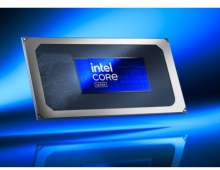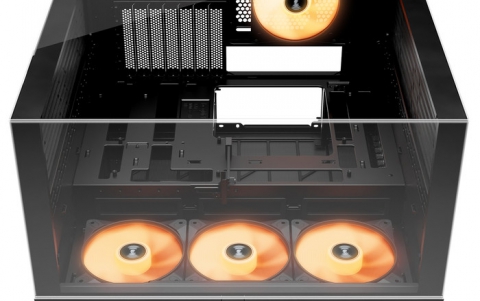
Intel short on 3.6GHz chips
Intel's flagship desktop processor, the 3.6GHz Pentium 4 560, is in very short supply, an Intel spokesman confirmed. The chip came out in June, along with the company's latest desktop chipsets, the 915 Express and 925 Express.
Dell removed the chip as an option on its Dimension 8400 desktop last week, a Dell representative said, leaving the 3.4GHz Pentium 4 550 as the highest-performance processor available on the system.
Dell continues to offer the 3.6GHz 560 chip on its Dimension XPS gaming desktop. However, lead times for a system configured with the chip have stretched to around 45 days, the representative said. Meanwhile, a version of the desktop with a 3.4GHz Pentium 4 550 or a 3.4GHz Pentium 4 Extreme Edition processor has a lead time of five days.
Hewlett-Packard also offers the 3.6GHz Pentium 4 560 on one of its build-to-order Compaq Presario desktops, the SA4000T, via its HPShopping Web site. The site quotes a lead time of just more than a week to get the system with the chip.
An informal survey of two of the more popular PC component retailers in the United States, NewEgg, of La Puente, Calif., and Monarch Computer in Tucker, Ga., did not show the chip for sale online.
The situation with Dell, which normally offers Intel's fastest chips in both Dimension 8000-series desktops and Dimension XPS systems, is similar to a situation in March, when Dell juggled the processors it offered in the two systems, switching from newer Prescott Pentium 4s to an older version of the chip dubbed Northwood. It did so because at the time the Northwood chips, including a version that ran at 3.4GHz, were much more readily available.
"It's clear they'd like to have higher volumes (of the 3.6GHz chip) there than are present" right now, said Dean McCarron, principal analyst at Mercury Research. "The higher-end speed grades (of the Pentium 4) have been available at lower volumes than PC buyers and other customers had expected."
Though it's not a good situation for Intel to be in, it might not necessarily represent a problem with the chipmaker's manufacturing. Instead, the company may have been too aggressive in its estimates of its ability to ramp up speeds on the latest Pentium 4s.
"I don't think this is symptomatic of any manufacturing problems or health issues," McCarron said. "It's perhaps more indicative of the launch timing and position of the product within the manufacturing process."
Over time, as a manufacturing process matures, chipmakers are typically able to derive more speed from their processors, thus allowing them to put out release schedules that show progressively higher speeds in the future. However, Intel appears to have overshot this time.
Right now, the sweet spot where most Prescott Pentium processors are sold is 2.8GHz or possibly 3GHz, McCarron said.
From NEWS.com





















